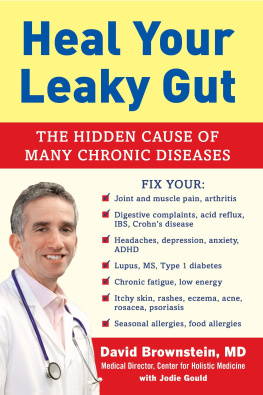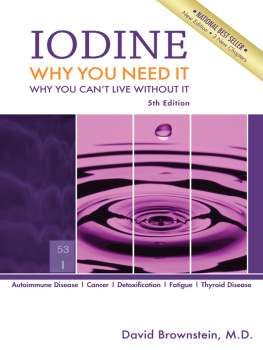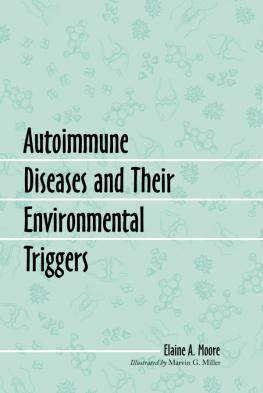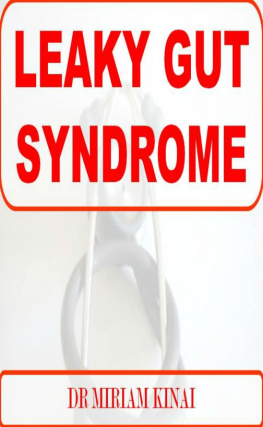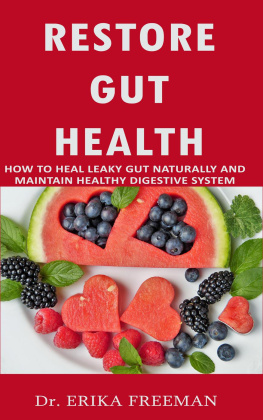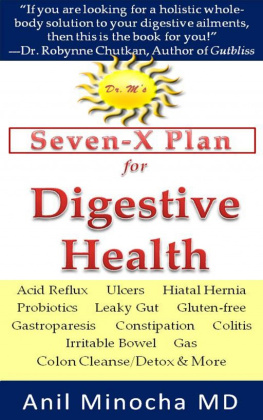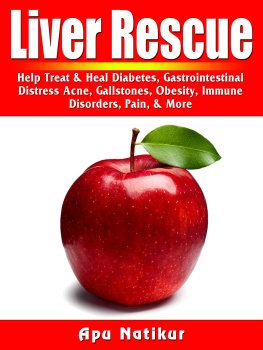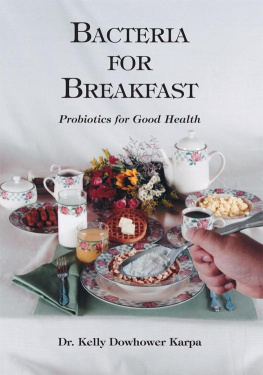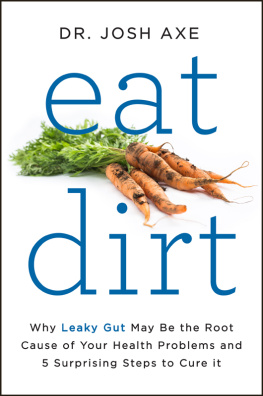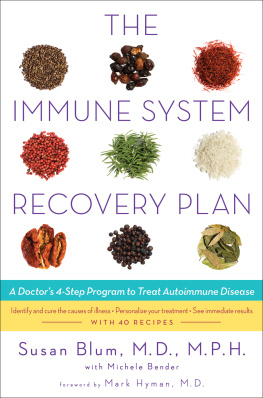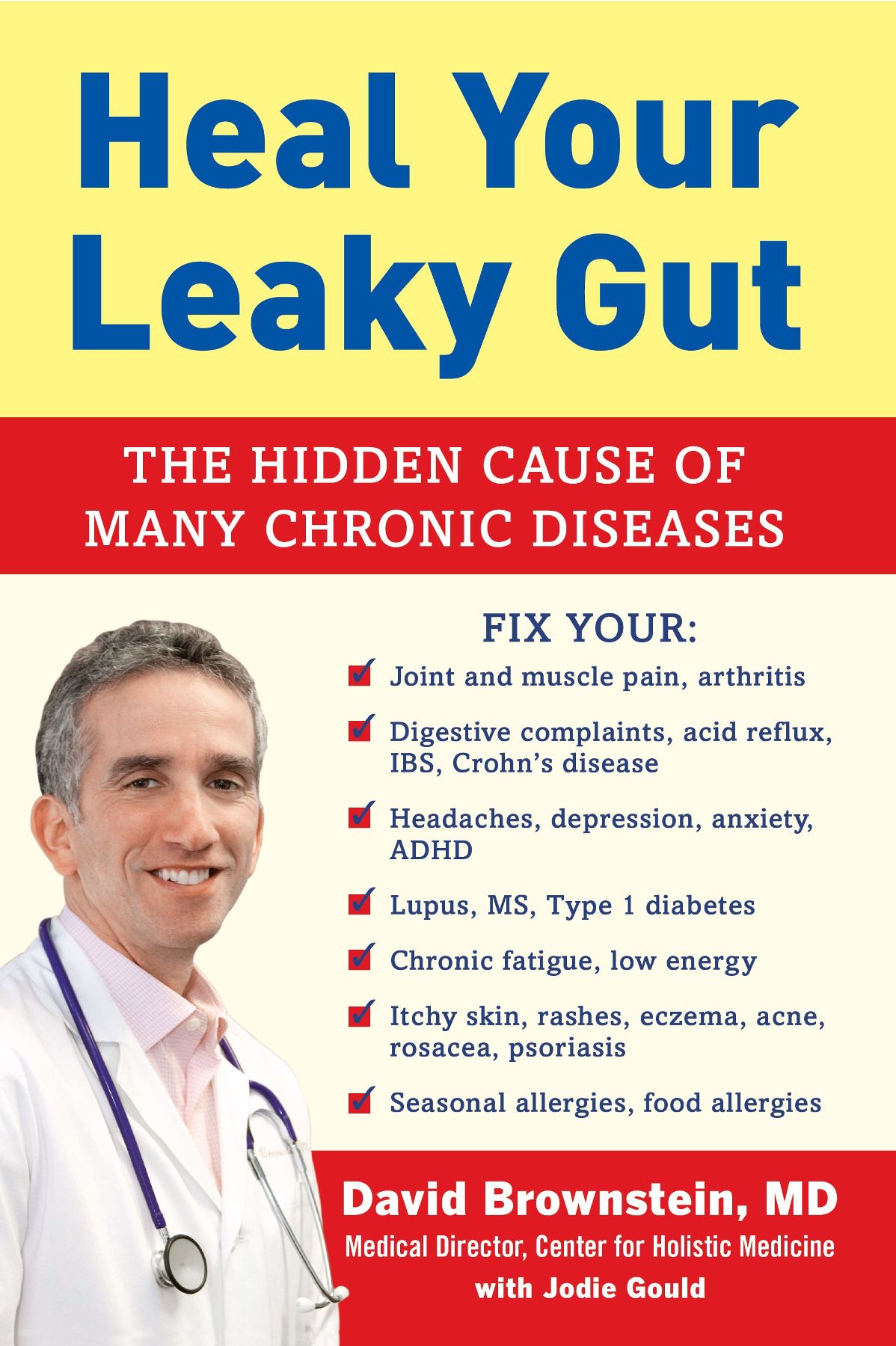
Heal Your Leaky Gut
The Hidden Cause of Many Chronic Diseases
David Brownstein, MD
with
Jodie Gould
Humanix Books
Heal Your Leaky Gut
Copyright 2017 by Humanix Books
All rights reserved
Humanix Books, P.O. Box 20989, West Palm Beach, FL 33416, USA
Library of Congress Control Number: 2017938659
No part of this book may be reproduced or transmitted in any form or by any means, electronic or mechanical, including photocopying, recording, or by any other information storage and retrieval system, without written permission from the publisher.
Cover Design: Design by Tom Lau
Interior Design: Scribe Inc.
Humanix Books is a division of Humanix Publishing, LLC. Its trademark, consisting of the word Humanix, is registered in the Patent and Trademark Office and in other countries.
Disclaimer: The information presented in this book is meant to be used for general resource purposes only; it is not intended as specific medical advice for any individual and should not substitute medical advice from a health care professional. If you have (or think you may have) a medical problem, speak to your doctor or health care practitioner immediately about your risk and possible treatments. Do not engage in any therapy or treatment without consulting a medical professional.
ISBN: 978-1-63006-080-0 (Hardcover)
ISBN: 978-1-63006-081-7 (E-book)
Contents
Angela, a thirty-three-year-old registered nurse, came to me with stomach pains, which she had been having for a year. It started after a particularly stressful event in her life, from which she never recovered. Since that time, she suffered from bouts of diarrhea, constipation, and bloating. The only time of the day she felt good was in the morning before eating. As soon as food hit her stomach, the pain would start. She saw three different doctors, all of whom diagnosed her with irritable bowel syndrome (IBS). They gave her different medications, none of which worked. Not one of the doctors talked to her about her diet, even though she asked them if her IBS (a.k.a. leaky gut) was caused by something she ate. One of the doctors, a gastroenterologist, told her, It doesnt matter what you eat.
She came to me frustrated that she wasnt getting better and asked if there were any alternative treatments that could help. I gave her a physical exam and took a complete medical and dietary history. I discovered that Angelas diet was loaded with dairy, including lots of cheese, and refined carbohydrates such as bread and pasta. When I asked if any particular foods bothered her, she said, All foods bother me. Her stomach was tender, and even a light touch would make her moan in pain.
Her lab tests revealed that she had a high level of antibodies in her system (large Y-shaped proteins recruited by the immune system to identify and neutralize foreign objects like bacteria and viruses) from cows milk protein called casein. This did not surprise me because the majority of the people I see are allergic to casein. She also tested positive for H. pylori, a bacterial infection of the stomach lining that 70 percent of people have without realizing it because they have no symptoms. I treated her with an herbal therapy consisting of oregano oil, Citricidal (made from grapefruit rind), and mastic, an herb from the Mediterranean that peer-reviewed studies have shown works with nearly 100 percent efficacy in treating H. pylori. I told Angela to adopt a dairy-free diet. When I saw her again eight weeks later, she was fully recovered.
I see patients like Angela with painful, leaky guts all the time. They come in sick of feeling sick and looking for something (anything) that will make them feel better and enjoy food (and life) again. If they are taking medications, and most are, they are suffering from the side effects of the drugs that are supposed to heal them. I used to be one of those doctors who prescribed whatever approved drugs were thought to treat the problem at hand. That was before I learned that using drugs and expecting them to improve the long-term function of your body is like putting water or orange juice instead of motor oil into your cars engine and expecting it to run smoothly.
My Story
All Ive ever wanted for as long as I can remember is to be a family doctor. I came from a traditional household where we went to doctors when we were sick and did whatever they said. In my family, we never thought to question our physicians. So when I went to college at the University of Michigan, I took the traditional, requisite premed courses and received my medical degree from Wayne State University in Detroit. Again, I never questioned what I was taught in medical school.
I remember taking one three-hour course in nutritionthat was it. I did not think much of that class, as nutrition was not emphasized in my medical training. I did become an expert in diagnosing illnesses and prescribing the right medication to treat those illnesses. (I didnt know then that much of what I was taught in medical school was incorrect.) I vividly remember telling my patients not to take supplements because they would be wasting their money. My mother-in-law, who was a big believer in nutrition and supplements, used to give me articles about both, but I was steadfast in my conviction that there was no science behind any of it. (Trust me, as I began to embrace the use of nutraceuticals, she never failed to remind me of my initial doubt.)
I did my residency at a busy family practice in Michigan and then began my own practice in a suburb of Detroit, where I was about to become a partner. Six months in, however, I started losing sleep, and I couldnt figure out why. After many sleepless nights, I woke up one day and told my wife, I dont want to be a doctor anymore! I was twenty-nine years old, I was $90,000 in debt from student loans, and my wife was pregnant with our first child. What are you talking about? she asked incredulously. (There were a few other words said here, but that is between her and me.)
I just dont like how I am practicing medicine, I said. All Im doing is treating people with drugs that arent really working and then having to use more medication to treat the side effects. Im not really helping anybody, I told her. I cant see myself doing this for the next thirty or forty years. My wife suggested I do another residency, but that would just be more of the same. She could see how painfully unhappy I was, but we were at a loss for what I should do next.
Around this time, a friend encouraged me to meet with a local chiropractor named Dr. Robert Radtke. I was reluctant to see him because, at that time, I used to advise my patients to stay away from chiropractors. However, due to my lack of sleep and my anxiety, I set up a meeting for the following week. When the meeting day came, I told my wife I was going to cancel, as I felt it would be a waste of my time. After all, why did I need to meet with a chiropractor when I didnt even believe in them? She said that would be rude and told me to go see him and be nice.
As it turned out, Dr. Radtke was a very smart doctor. He knew a tremendous amount about nutrition, which I didnt know about, and he talked about treating patients with vitamins, minerals, herbs, and the chiropractic philosophy. He was schooled on entirely different therapies than I was. In fact, I knew little to nothing about the therapies he was having success with. Dr. Radtke gave me a book called Healing with Nutrition by Jonathan Wright, MD, an allopathic practitioner. I read it cover to cover late into the night.
Next page
